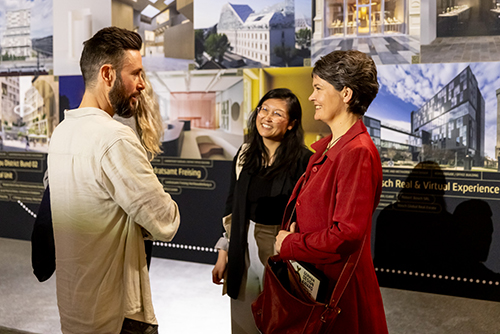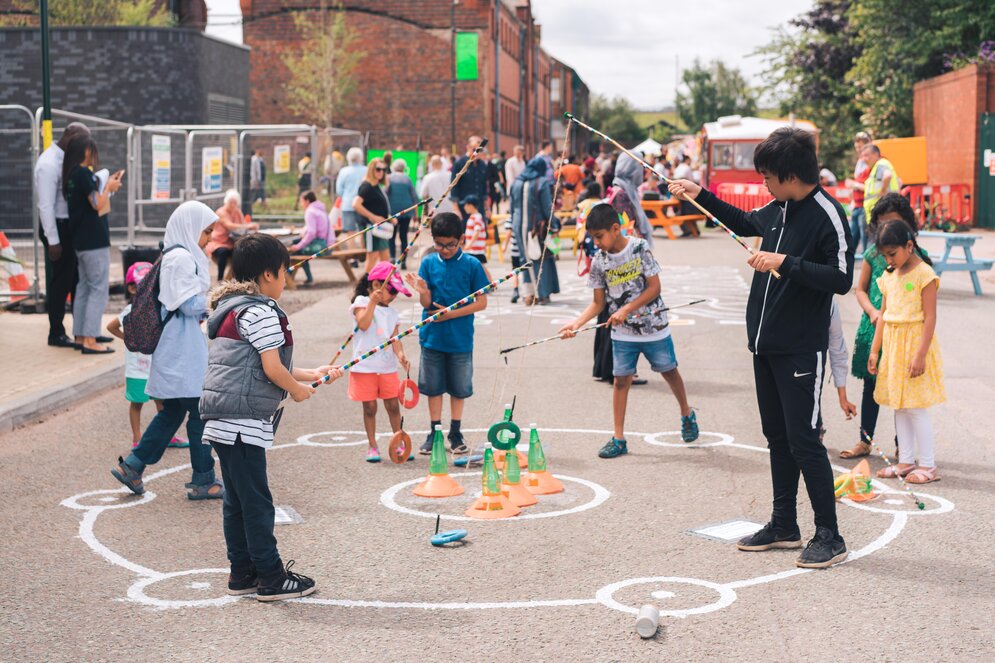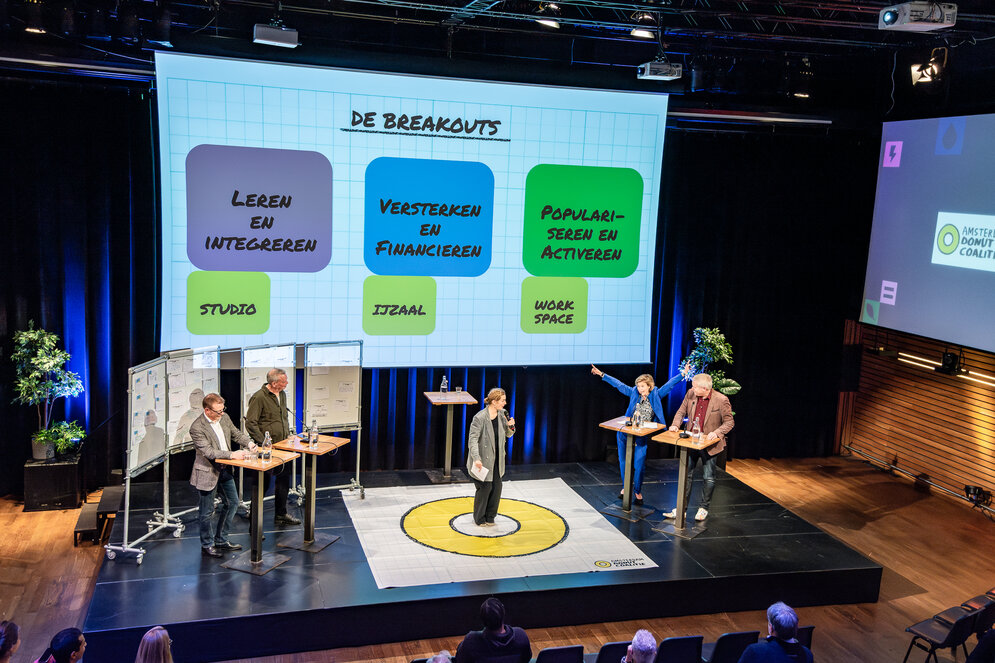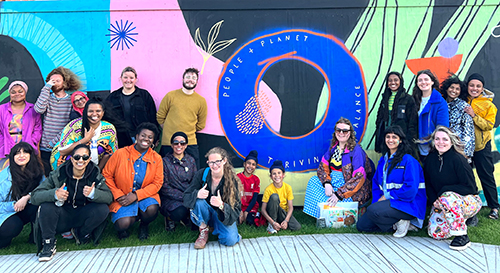Kate Raworth and the Doughnut Economics Action Lab (DEAL)
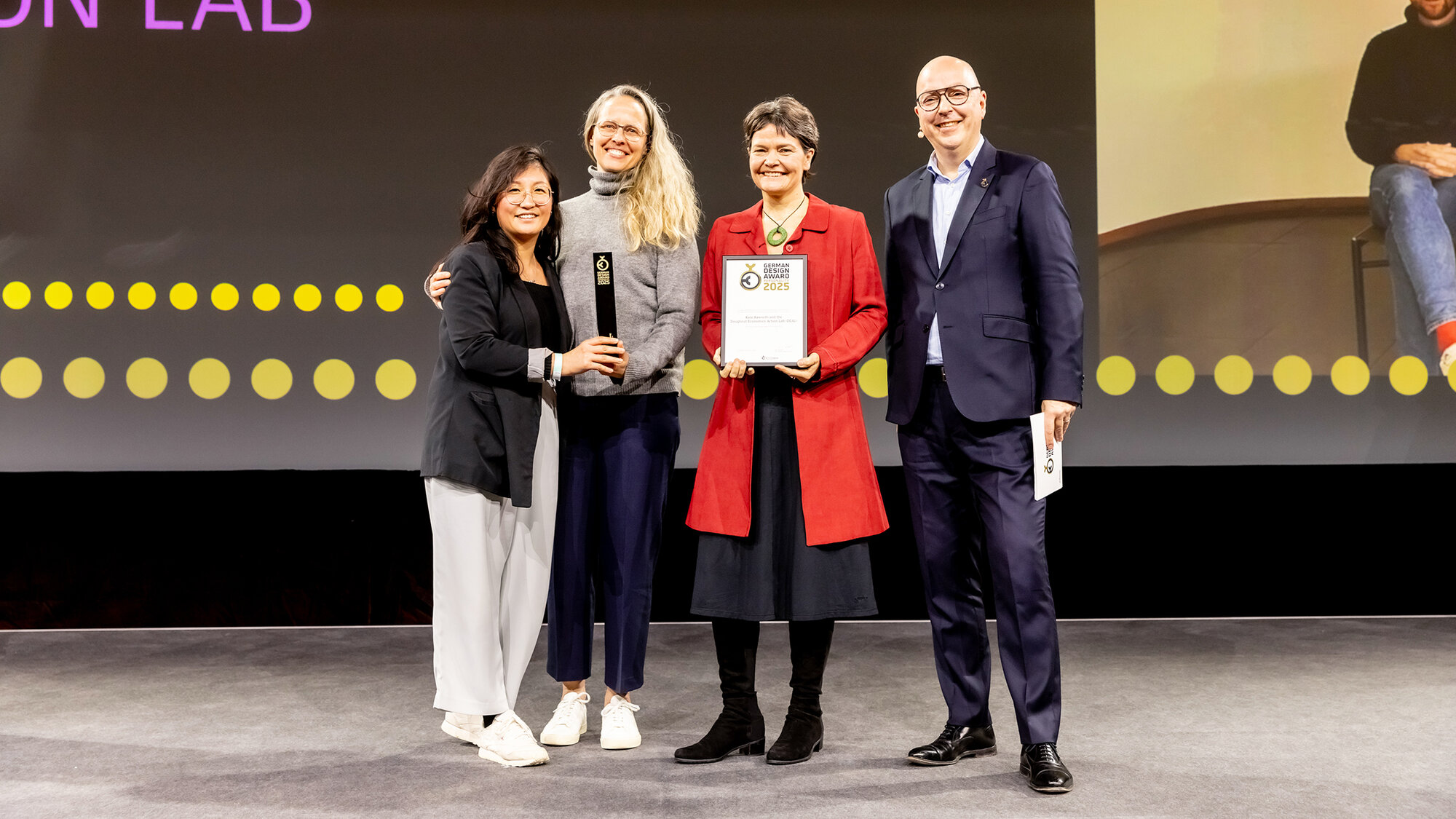
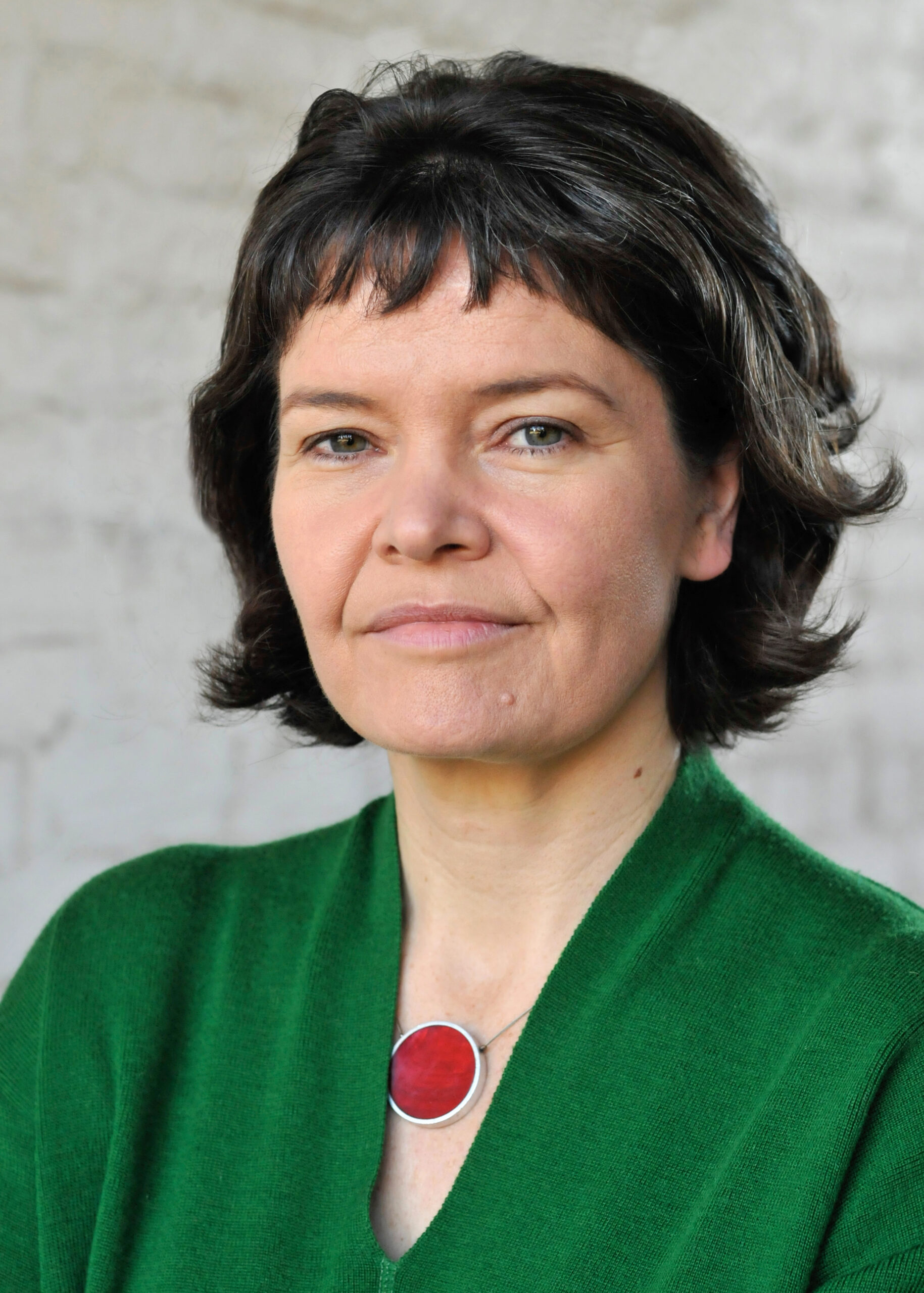
British economist Kate Raworth studied Politics, Philosophy, and Economics at the University of Oxford and early on focused on development economics. Her career took her to the United Nations and the NGO Oxfam before she gained international recognition with her groundbreaking theory of Doughnut Economics. Her 2017 book Doughnut Economics: Seven Ways to Think Like a 21st-Century Economist has since sparked global discussions on sustainable economic models and has been translated into multiple languages.
By founding the Doughnut Economics Action Lab (DEAL), Raworth created a platform that helps cities, businesses, and organizations actively drive economic transformation. DEAL develops methods to guide cities, companies, and communities toward economic practices that operate within the social and ecological boundaries of our planet. Cities like Amsterdam, Brussels, and Copenhagen are already integrating this model into their urban development strategies.
Kate Raworth is a visiting lecturer at the University of Oxford and also teaches at the University of the Arts London. She is recognized as one of the most influential thinkers in shaping a new economic system that balances human prosperity with planetary limits.
Jury Statement
Kate Raworth and DEAL are honored for their groundbreaking contributions to redefining the global economy through the Doughnut Economics model. This visionary framework aligns social needs with ecological boundaries and is already being implemented in cities such as Amsterdam, Copenhagen, and Brussels to promote sustainable and fair urban development.
Beyond the urban context, DEAL inspires communities, businesses, and institutions worldwide to rethink economic models – shifting towards regenerative, circular systems that preserve rather than exploit resources. By integrating principles of the circular economy and systems thinking, DEAL highlights how design plays a crucial role in addressing global challenges like climate change, biodiversity loss, and social inequality.
The jury recognizes the courage, foresight, and dedication of Kate Raworth and her team in building a global movement for a fair and regenerative future.
Kate Raworth’s approach: An invitation to rethink economics
Kate Raworth’s ideas are an open invitation to rethink economics. A fresh alternative to a system that is increasingly running on empty. While others continue to preach infinite growth, she asks a simple but radical question: Growth for what?
Her Doughnut model offers a clear answer. At its core: everything people need—food, education, healthcare. At the outer edge: the ecological limits that must not be exceeded. In between lies the space where an economy can function without undermining its own foundation. Sounds obvious? It is. And yet, it’s nothing short of a revolution.
Raworth’s thinking is not just theory – it’s already being put into practice. Amsterdam is using the Doughnut as a guiding principle for urban planning. Businesses are experimenting with new models. “We don’t need to wait for systemic change,” she says. “We can start now.”
What makes her approach unique is that it’s not a rigid doctrine, it’s a tool. It forces no one; it invites. To think differently, to redesign, to take action. And it shows that the economy is not a given – it’s built. And what is built can be rebuilt.
Raworth doesn’t talk about sacrifice, but about possibilities. “Images shape the way we think,” she says. And that’s exactly where the Doughnut comes in: it creates a new image of progress. One that doesn’t come at the expense of others. It’s a model for anyone who wants to rethink economics without being held back by old ideologies.
For deeper insights into her vision and the change she’s driving, check out ndion’s exclusive interview with Kate Raworth. More information here:

